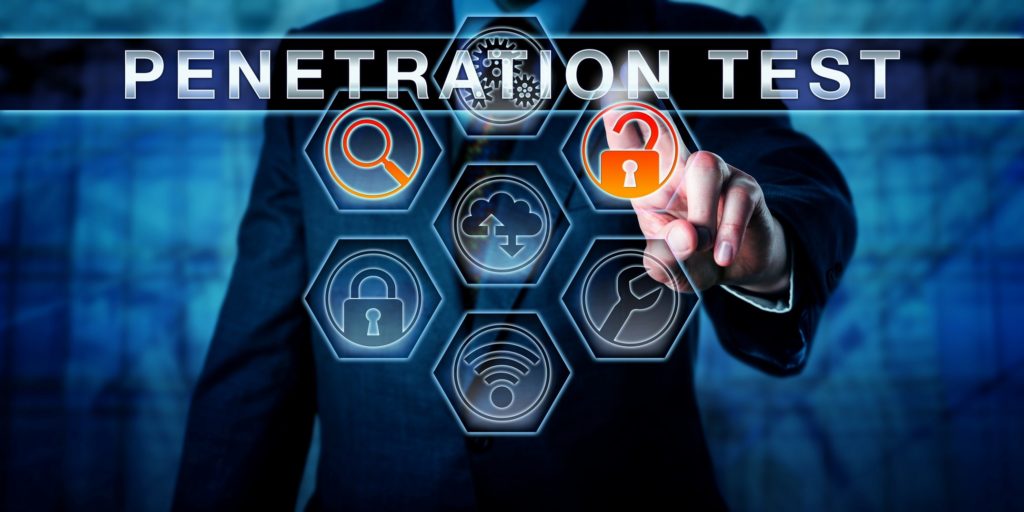In today’s digital age, the security and privacy of sensitive healthcare information are of paramount importance. The Health Insurance Portability and Accountability Act (HIPAA) sets the standards for protecting patient data and ensuring compliance within the healthcare industry. Compliance with HIPAA regulations is not only necessary to avoid hefty penalties but also crucial for maintaining trust and safeguarding patient confidentiality. In this article, we will discuss the 15 must-have items on your HIPAA checklist to ensure compliance and data security.
Conduct a Thorough Risk Assessment:

Source: breachlock.com
The first step towards HIPAA compliance is conducting a comprehensive risk assessment. This assessment helps identify potential vulnerabilities and threats to the security of electronic protected health information (ePHI). By evaluating your organization’s infrastructure, systems, and processes, you can pinpoint areas that require immediate attention and implement suitable security measures.
Develop and Implement Policies and Procedures:
Establishing well-defined policies and procedures is crucial for maintaining HIPAA compliance. These policies should encompass various aspects, such as access controls, data encryption, incident response, and employee training. By clearly documenting these policies and ensuring their consistent implementation, you create a framework that promotes data security and compliance within your organization.
Implement Access Controls and User Authentication:
Controlling access to ePHI is a fundamental requirement under HIPAA. Implement robust access controls to ensure that only authorized personnel can access sensitive patient information. This includes user authentication mechanisms like strong passwords, multi-factor authentication, and regular access reviews. By strictly managing user access, you minimize the risk of unauthorized data breaches.
Encrypt and Protect Data:

Source: itprotoday.com
HIPAA mandates the encryption of ePHI to safeguard patient information from unauthorized access. Implement encryption technologies to secure data both in transit and at rest. Encryption helps ensure that even if data is intercepted or stolen, it remains unreadable and unusable without the decryption key. Employ strong encryption protocols and monitor their effectiveness regularly.
Establish Secure Backup and Disaster Recovery Processes:
Data loss or system failures can occur unexpectedly, posing a significant risk to the integrity of ePHI. Establishing robust backup and disaster recovery processes is essential to maintain HIPAA compliance. Regularly back up all critical data, test the restoration process, and store backups in secure off-site locations. This ensures that in the event of a disaster, you can recover data and maintain continuity of care.
Train and Educate Employees:
Employees play a crucial role in maintaining HIPAA compliance and protecting patient information. Conduct regular training sessions to educate staff about their responsibilities, data handling procedures, and the latest security threats. Emphasize the importance of maintaining confidentiality and the potential consequences of non-compliance. By fostering a culture of security awareness, you empower your employees to become HIPAA-compliant guardians of patient data.
Establish Incident Response and Reporting Procedures:

Source: inspiredelearning.com
Despite implementing robust security measures, incidents can still occur. Establish a well-defined incident response plan that outlines the steps to be taken in case of a security breach or data incident. Promptly investigate any potential breaches, document the findings, and report the incident to the appropriate authorities as required by HIPAA regulations. Having an efficient incident response procedure minimizes the impact of security breaches and helps prevent future incidents.
Regularly Update Software and Systems:
Outdated software and systems are often more vulnerable to security threats and exploits. Ensure that all software and systems used to handle ePHI are up to date with the latest security patches and upgrades. Regularly monitor vendor websites and security advisories to stay informed about potential vulnerabilities and apply necessary updates promptly. By keeping your systems current, you enhance their security posture and reduce the risk of data breaches.
Conduct Internal Audits and Assessments:
Regular internal audits and assessments are essential for ensuring ongoing compliance with HIPAA regulations. These audits help identify any gaps or deficiencies in your organization’s data security practices. By conducting periodic reviews of your policies, procedures, and technical safeguards, you can proactively address any non-compliance issues and implement necessary corrective measures.
Establish Business Associate Agreements:

Source: hipaatrek.com
If your organization shares ePHI with third-party vendors or business associates, it is crucial to have proper agreements in place. Business Associate Agreements (BAAs) outline the responsibilities and requirements for safeguarding patient data. Ensure that all vendors or partners who have access to ePHI sign BAAs, clearly defining their obligations to protect the information and adhere to HIPAA regulations.
Monitor and Audit User Activity:
Monitoring and auditing user activity within your organization’s systems are critical components of HIPAA compliance. Implement robust logging and auditing mechanisms to track and review user access to ePHI. Regularly review audit logs to detect any suspicious activities or unauthorized access attempts. By maintaining a vigilant watch over user activity, you can quickly identify and mitigate potential security risks.
Establish Physical Security Measures:
While much of the focus in HIPAA compliance is on digital security, physical security is equally important. Implement measures to protect physical access to areas where ePHI is stored or processed, such as data centers, server rooms, and file cabinets. Use security controls like access cards, surveillance systems, and visitor logs to monitor and restrict entry to these areas. By securing physical access points, you reduce the risk of unauthorized disclosure or theft of patient information.
Implement Data Retention and Disposal Policies:

Source: chaossearch.io
HIPAA regulations require organizations to establish data retention and disposal policies. Determine the appropriate retention period for different types of patient data and establish processes for secure data disposal once it is no longer needed. Implement secure data destruction methods, such as shredding or data wiping, to ensure that ePHI cannot be recovered from discarded media or devices.
Conduct Vendor Management and Due Diligence:
If you engage third-party vendors or service providers who handle ePHI on your behalf, it is essential to conduct thorough vendor management and due diligence. Before partnering with a vendor, assess their security practices, compliance with HIPAA regulations, and data protection capabilities. Ensure that they have appropriate security controls in place and sign BAAs to establish their responsibility for safeguarding patient information.
Perform Regular Security Testing and Penetration Testing:

Source: 360logica.com
Regular security testing, including vulnerability assessments and penetration testing, helps identify any weaknesses or vulnerabilities in your organization’s systems. These tests simulate real-world attacks to evaluate the effectiveness of your security controls and identify potential entry points for hackers. By conducting such tests regularly, you can proactively address vulnerabilities and reinforce your data security measures.
Conclusion:
Maintaining HIPAA compliance and ensuring data security within the healthcare industry is an ongoing process. By incorporating these 15 must-have items into your HIPAA checklist, you establish a robust framework to protect patient information and meet regulatory requirements. Remember, HIPAA compliance is not only about avoiding penalties but also about protecting patient trust and maintaining the integrity of the healthcare system. Prioritize data security, regularly assess your systems and procedures, and stay updated with the latest industry best practices to safeguard sensitive healthcare information effectively.



